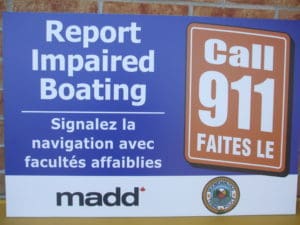(WIKWEMIKONG, ON) – An arrest has been made in connection to a shooting death on Wikwemikong Unceded Territory.
On February 19, 2023, shortly before 1:40 a.m., members of the Wikwemikong Tribal Police, the Manitoulin Detachment of the Ontario Provincial Police (OPP), and the Sagamok Detachment of the Anishinabek Police Service responded to a shooting on Hills Trail.
Upon arrival, police learned that one person had been shot and that the suspect had fled the scene. Brandon Trudeau Pheasant, 25 years-of-age from Wikwemikong Unceded Territory, has died as a result of his injuries. A shelter in place of safety was temporarily initiated until the arrest was made.
Tyran ARMSTRONG, 18-years-old of M’Chigeeng First Nation, was arrested and charged with First Degree Murder, contrary to section 235(1) of the Criminal Code and remanded into custody to appear before the Ontario Court of Justice in Gore Bay on February 21, 2023.
The OPP Manitoulin Crime Unit, OPP North East Region Emergency Response Team, OPP Tactics and Rescue Unit, OPP North East Region Forensic Identification Services, and the Wikwemikong Tribal Police Service are continuing this investigation under the direction of the OPP Criminal Investigation Branch.
Investigators believe this was an isolated incident and there are no concerns for public safety.
The OPP is appealing to anyone who may have observed suspicious activity related to this case to call the OPP at 1-888-310-1122. Should you wish to remain anonymous, you may call Crime Stoppers at 1-800-222-8477 or submit information online at ontariocrimestoppers.ca where you may be eligible to receive a cash reward of up to $2000.
– 30 –
Contact: Provincial Constable John Hill
Community Safety Officer
Phone: (705) 863-1419
Email: john.d.hill@opp.ca

